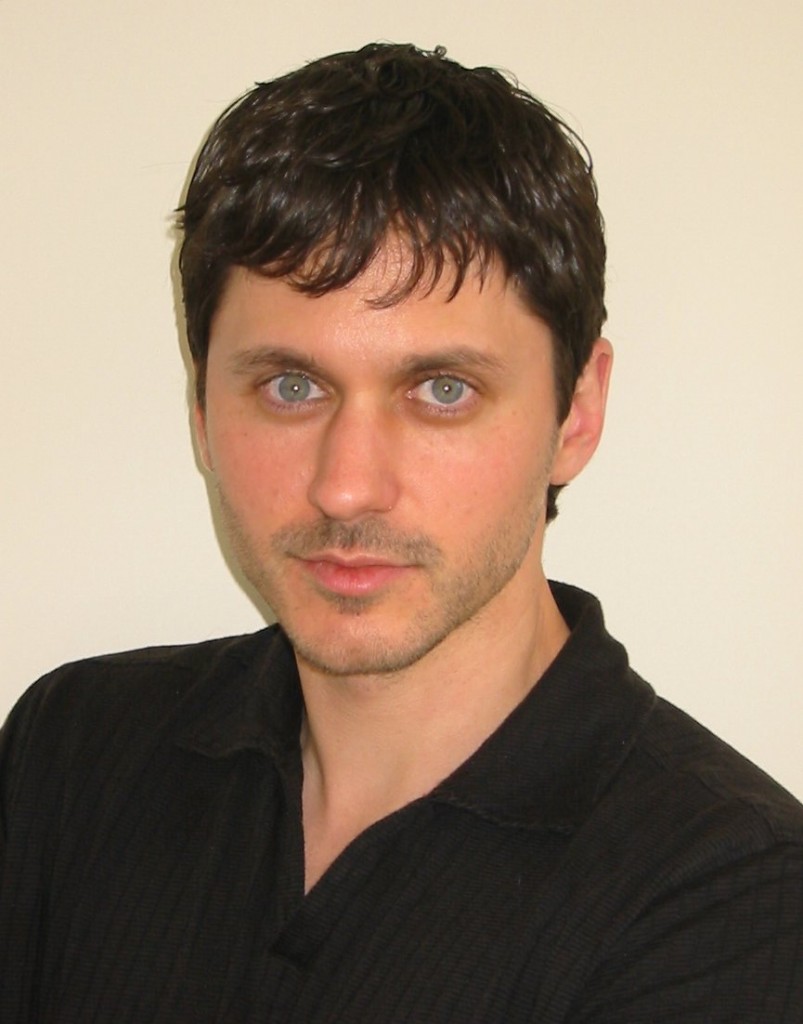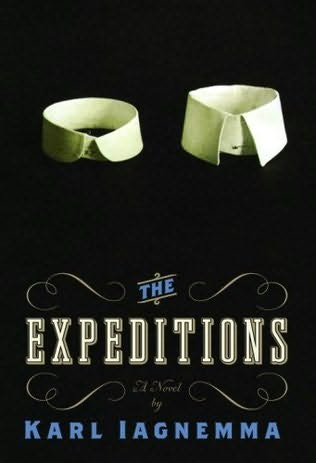Interview: Karl Iagnemma
 Midwestern Gothic staffer Jon Michael Darga talked with author and research scientist Karl Iagnemma about Midwest sensibilities, what it means to be human, the unexplored Upper Peninsula, and more.
Midwestern Gothic staffer Jon Michael Darga talked with author and research scientist Karl Iagnemma about Midwest sensibilities, what it means to be human, the unexplored Upper Peninsula, and more.
**
Midwestern Gothic: First things first, tell us about your Midwestern roots.
Karl Iagnemma: I was born and raised in suburban Detroit, and didn’t leave the Midwest until I finished my undergraduate degree at the University of Michigan. Since then I’ve lived in Ireland, Greece, and a few locations in the eastern US—but the Midwest remains home. I visit Michigan a few times every year, to see family and friends, and to stock up on Vernors.
MG: You’re both a fiction writer and a research scientist. How do those two passions feed off of each other? Do you ever find that your fiction and science sides bleed into one another?
KI: Research provides great material for fiction writing. The characters who populate MIT’s corridors couldn’t exist anywhere else; there’s the baroque geek-speak of the research community, which even to me is sometimes impenetrable; then there are the dramas that occasionally arise during the research process, which are often unexpectedly fascinating.
I’ve drawn on both my own research and historical research in my short stories and novels. One of fiction’s purposes is to make the mundane feel new, and research provides a lens through which we can re-imagine classic themes of ambition, desire, greed, and all the rest. It’s pretty loamy terrain.
MG: You grew up in suburban Detroit. How has that setting influenced your works?
KI: The landscape of suburban Detroit doesn’t offer much aesthetic beauty, and as a youth I didn’t travel enough to see more interesting or beautiful or dramatic parts of the country. Honestly, suburban Detroit has influenced my work only in that I see myself creating fictional landscapes that are more interesting than the landscape I grew up in—I see myself trying to create settings that generate a fictional spark, that do something.
MG: Your collection On the Nature of Human Romantic Interaction explores what it means to be human, described as “exploring the boundary between the rational mind and the restless heart.” Between robots, superheroes, and zombies, there’s a lot of exploration of humanity going on today. What do you think it is about those themes that continue to resonate? What about that intrigues you?
KI: The question of what it means to be human has been debated since humans could debate, and any new idea that seasons the conversation, however subtly, is worth exploring. Robots are interesting fictional figures because they provide a representation of the other—a form that is similar to humanity but not the same. (Robots are also incredibly cool, fun, terrifying, creepy, and awesome.)
MG: In your writing, do you tend to find your representations of humanity optimistic, pessimistic, realistic, or hopeful? Why do you think that is?
KI: I see my work as slightly pessimistic, though not because I’m a pessimist, but rather because it’s easier to write fiction that is conflict-rich and a bit glum. It’s hard to write about happiness and optimism. I haven’t yet figured out how to pull that off.
MG: Do you think that your upbringing and familiarity with the Midwest and its culture has influenced that view at all?
KI: To grossly generalize (though in a way that is absolutely consistent with my own upbringing), Midwesterners tend to accept their lot, for better or worse. This suggests stoicism, but also a slight lack of ambition and worldliness. It’s not a bad a way to live—I’ve seen New England dissatisfaction up close, and it can be off-putting. So, I don’t think that my Midwestern upbringing has influenced my fictional viewpoint, but I do tend to create Midwestern characters—some by birth, and others by sensibility.
 MG: Your novel The Expeditions explores Michigan’s Upper Peninsula in 1844. What was it about that time and place that spoke to you?
MG: Your novel The Expeditions explores Michigan’s Upper Peninsula in 1844. What was it about that time and place that spoke to you?
KI: I wanted to write a novel about one of the great American themes—the frontier—but I didn’t want to write a western. I wanted to write about my own state, mostly due to my fascination with Michigan history. So, I chose to set a novel in the 1840s, when Michigan was “the Northwest,” and the Upper Peninsula was unexplored terrain populated by Native Americans and the occasional beaver.
MG: Can you talk a little bit about the differences between writing short stories and your novel? Have you found longer or shorter prose easier to write?
KI: Compared to writing a novel, story writing is easier mentally, physically, and emotionally. The novel,when done well, contains the sentence-level precision of a great story while orchestrating expansive themes that are impossible to pack into 20 or 30 pages. The novel also forces a writer to consider pacing in a way that stories do not.
The short story is beloved by students because it’s a form that they can get their head around, that they can figure out, and can revise obsessively until it’s completely bulletproof (within its own aesthetic limits). The novel is so big and unwieldy and multi-faceted that once it reaches a certain length it’s impossible to fit entirely into a writer’s head. At that point all you have are your writerly instincts.
Pretty scary stuff.
MG: What’s next for you?
KI: I’m working on two novels, one about a humanoid robot and the other about self-driving cars. It’s not
clear if I’ll finish either, but if nothing else they’ve been good sparring partners.
**
Karl Iagnemma was raised in suburban Detroit and attended the University of Michigan, where he studied mechanical engineering and began writing fiction. He did graduate work in robotics at the Massachusetts Institute of Technology, and wrote much of his first book, On the Nature of Human Romantic Interaction, as a Ph.D. student. His short stories have received numerous awards, including the Paris Review Plimpton Prize, first place in the Playboy college fiction contest, and grants from the National Endowment for the Arts and Massachusetts Cultural Council. His writing has appeared in The Paris Review, Zoetrope, SEED, and NASA’s ASK magazine, and been anthologized in the Best American Short Stories, Best American Erotica, and Pushcart Prize collections.






